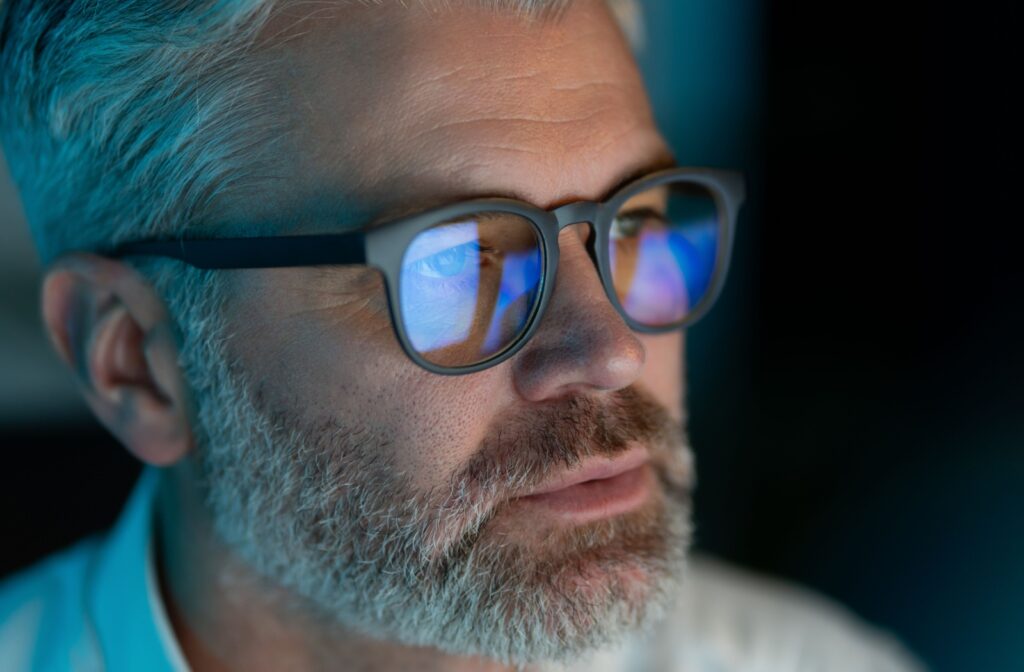Life today often means scrolling through smartphones, working on computers, and streaming from tablets long into the evening. While digital devices have become essential tools for work and relaxation, constant screen use has introduced a new challenge for many users—digital eye strain.
For those experiencing tired, heavy eyes, or trouble falling asleep after a long day of screen time, the search for solutions may lead to blue light glasses. While there’s little evidence that blue light glasses can directly eliminate eye strain, they may still help improve comfort during computer use by blocking certain wavelengths of light.
What Effects Can Blue Light Have?
Blue light is a color in the visible light spectrum that has relatively short wavelengths and high energy. It’s naturally present in sunlight, but it’s also emitted by digital device screens, LED lights, and other artificial sources.
Exposure to blue light is a natural and necessary part of life. During the day, it can boost attention and reaction times, while also helping to regulate sleep-wake cycles. However, the artificial blue light emitted by our screens has raised concerns, particularly when we’re exposed at night.
Blue light exposure at night can interfere with melatonin production, the hormone that signals your body it’s time for rest. This is why late-night screen use is sometimes linked to difficulties falling asleep and staying asleep.
However, while blue light often gets the blame for symptoms like dry eyes and fatigue, it’s not the sole culprit. Digital eye strain (or computer vision syndrome) is often caused by prolonged screen usage making your eyes work extra hard, not just blue light exposure alone. Factors like poor ergonomics, prolonged focus, and infrequent blinking play significant roles as well.
Additionally, blue light doesn’t damage retinal cells at normal screen-use levels. Some alarming headlines overstate potential harm, while the amounts reaching your eyes from your phone or monitor are vastly lower compared to sunlight.
What Are Blue Light Glasses?
Blue light glasses are specially designed eyewear that helps filter or block a portion of blue light emitted from digital screens. These glasses come with lenses that aim to reduce blue light transmission to the eyes while preserving visual clarity.
Blue light glasses are available in a variety of styles and with different features. Some come with light-yellow tints that block a large portion of blue wavelengths, while others are virtually clear and filter less blue light. Additionally, some lenses include anti-reflective coatings to minimize glare from screens.
While blue light glasses might not be the magical solution to all screen-related discomfort, research suggests they can still offer some benefits. Most importantly, wearing these glasses may help minimize blue light’s impact on circadian rhythms at night, potentially promoting better sleep. Additionally, by addressing screen glare, they can help users feel more comfortable during extended screen time.

Benefits of Blue Light Glasses
Though they aren’t a cure-all, blue light glasses offer benefits that can complement other eye health routines.
Indirect Help with Eye Strain
Eye strain is more often related to prolonged focus and reduced blinking rather than blue light exposure. However, blue light glasses may still help in reducing glare and improving visual comfort, indirectly alleviating some feelings of strain after hours of screen use.
Better Sleep Quality
By reducing the amount of blue light exposure in the evening, these glasses may support healthier melatonin production, helping your body prepare for a restful sleep when it’s time to wind down.
Other Potential Benefits
Some people report reduced headaches and greater comfort when using blue light-blocking lenses during prolonged work sessions. Additionally, projects into the potential psychological benefits, such as reduced anxiety linked to digital overuse, remain an exciting area of study.
Tips for Managing Digital Eye Strain
While blue light glasses can be a helpful tool, managing digital eye strain holistically often requires combined strategies. Here are some easy ways to care for your eyes and improve your screen time:
- Follow the 20-20-20 rule: Every 20 minutes, look at something 20 feet away for at least 20 seconds to reset your focus.
- Adjust your screen settings: Lower screen brightness and activate blue-light filter settings in the evening.
- Maintain proper posture: Position your screen so your eyes are level with the top of the monitor and about an arm’s length away.
- Use artificial tears: Relieve dryness with lubricating eye drops, especially in air-conditioned environments.
- Take breaks: Step away from screens periodically to relax your eyes and stretch your body.
- Explore specialized lenses: If screen use triggers chronic headaches, options like Avulux migraine & light sensitivity lenses can provide additional support tailored for light sensitivities.
Your Vision Is Worth Investing in
Whether or not screen time dominates your daily routine, finding comfort and maintaining your eye health is essential. Blue light glasses offer a sleek, practical accessory to make modern device use a little easier. Combine them with smart eye-care habits, and you’ll be well on your way to creating a healthier screen environment.
If you’re ready to take your digital eye health to the next level, book an appointment with Professional Eyecare Centers today. Our friendly team can help you explore tailored solutions that keep your vision sharp and your mind fresh!




